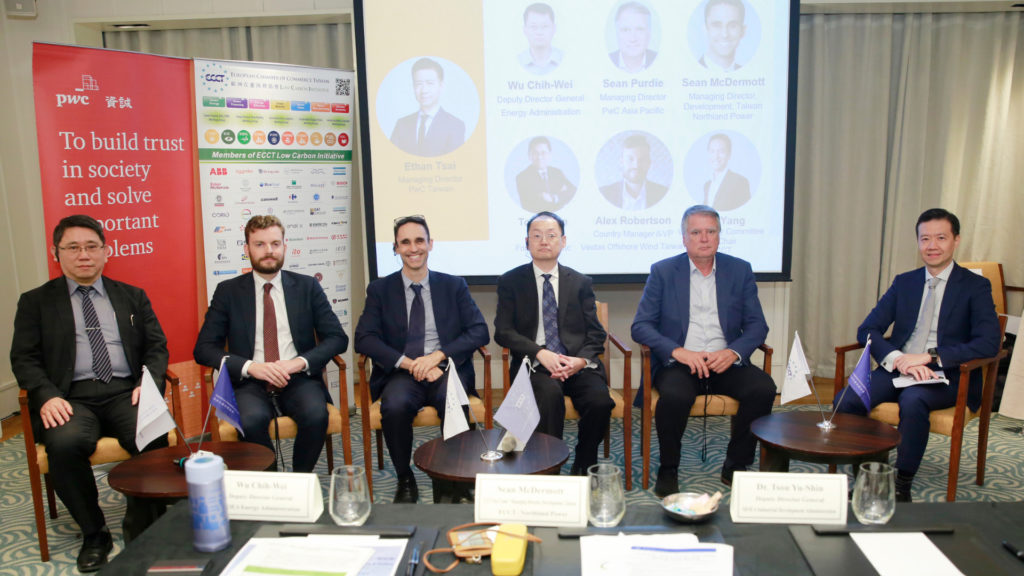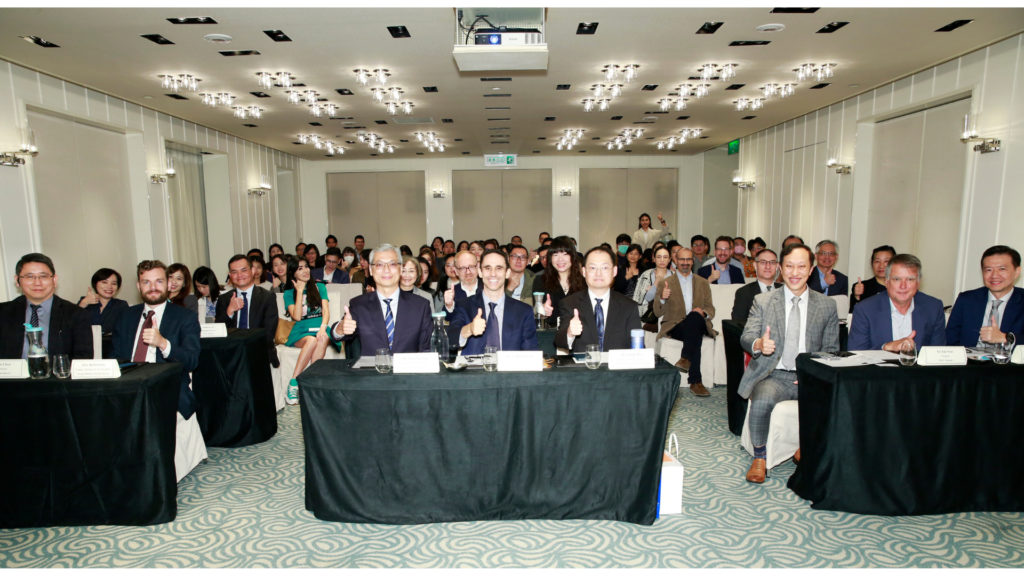[Event Report] LCI "Green Finance, ESG, CPPA" Working Group Meeting 2023 Q4 : Localization Challenges&Opportunities of Offshore Wind Round 3.2 離岸風電3.2以及國產化的挑戰與機遇論壇活動報導
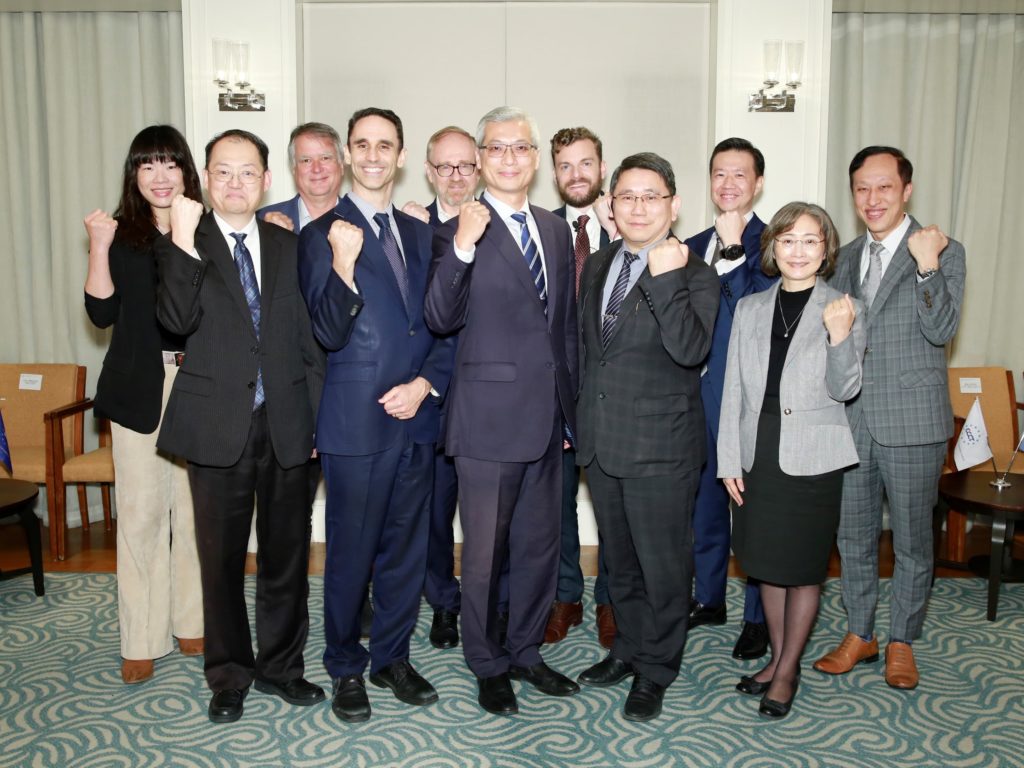 (1st row: L-R) Wu Chih-Wei, MOEA Energy Administration Deputy Director General; Sean McDermott, Northland Power Managing Director of Development, Taiwan&ECCT LCI Vice Chair; Dr. Tsou Yu-Shin, MOEA Industrial Development Administration Deputy Director General; Tom Chen, Fortune Electric Director; Eliza Li, PwC Sustainability & Climate Change Services Leader
(1st row: L-R) Wu Chih-Wei, MOEA Energy Administration Deputy Director General; Sean McDermott, Northland Power Managing Director of Development, Taiwan&ECCT LCI Vice Chair; Dr. Tsou Yu-Shin, MOEA Industrial Development Administration Deputy Director General; Tom Chen, Fortune Electric Director; Eliza Li, PwC Sustainability & Climate Change Services Leader
(2nd row: L-R) Sammy Su, ECCT LCI Director; Sean Purdie, PwC Asia Pacific ESG - Energy Transition Managing Director; Laurent Chevalier, TotalEnergies Country Chair; Alex Robertson, Vestas Offshore Wind Taiwan Country Manager & Vice President; Ethan Tsai, PwC Taiwan Managing Director; Yi-Tai Tsai, PwC Taiwan Partner
Photo Gallery: Facebook / LinkedIn
Press Release: PwC
On 21 November 2023, The ECCT's Low Carbon Initiative (LCI) together with PwC jointly hosted a green finance, ESG and CPPA working group meeting on the topic "Localization challenges & opportunities of offshore wind Round 3.2", with 80 attendees participating.
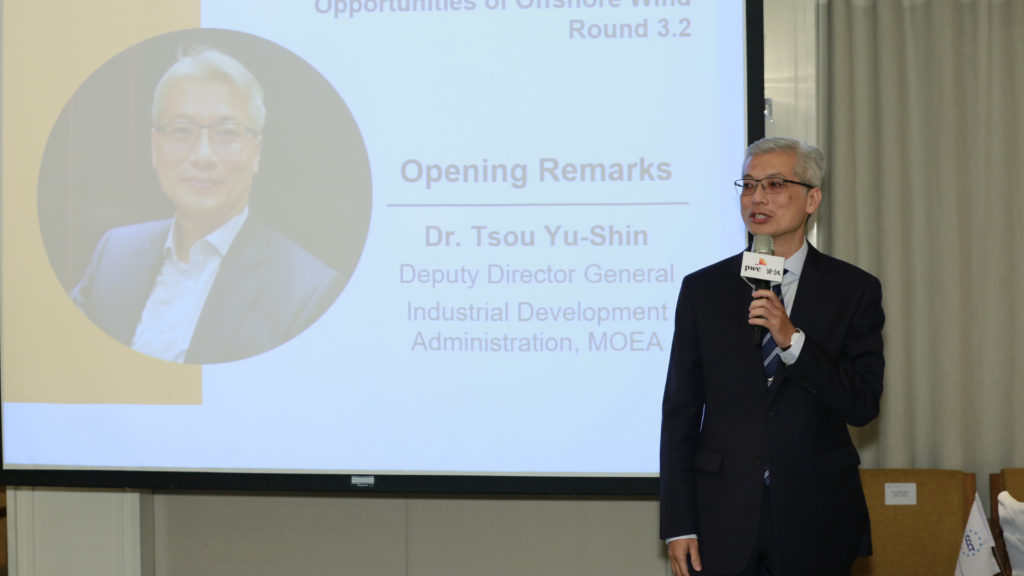
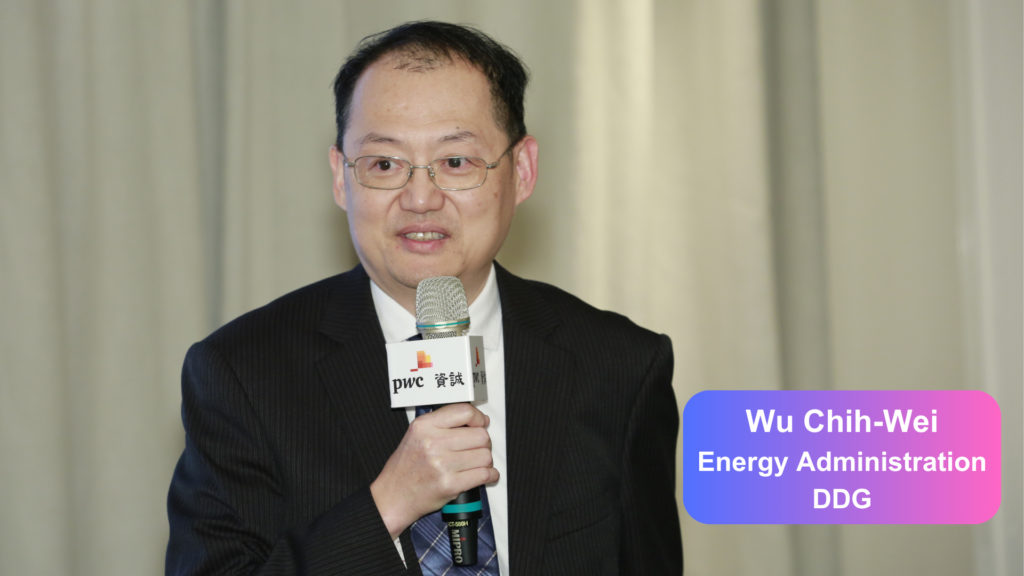
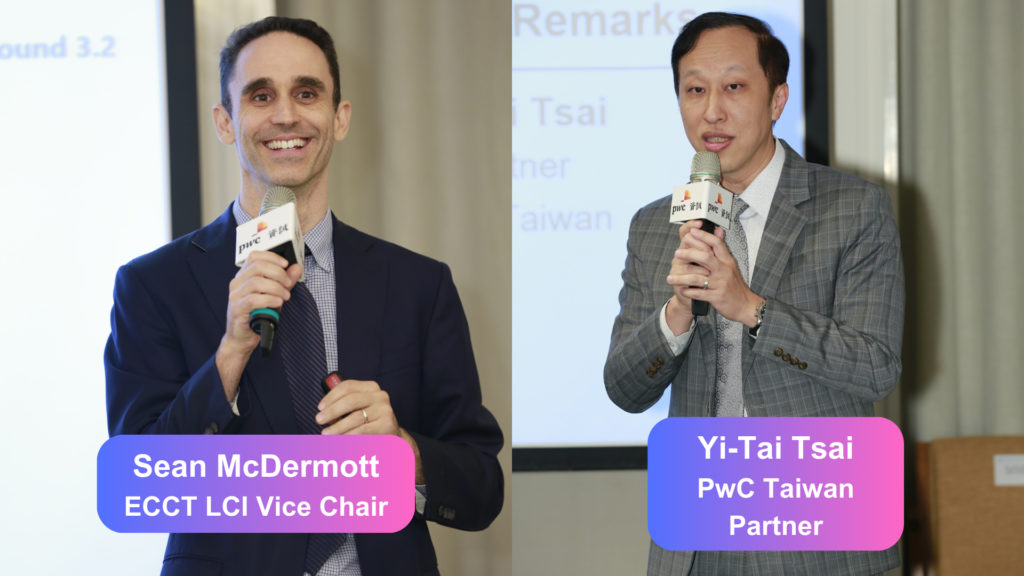
At the forum, opening remarks were made by Wu Chih-Wei, Deputy Director General of MOEA's Energy Administration, Dr Tsou Yu-Shin, Deputy Director General of MOEA's Industrial Development Administration, Sean McDermott, LCI Vice Chair, and Tsai Yi-Tai, Partner at PwC Taiwan. This was followed by presentations and a panel discussion featuring prominent keynote speakers and panellists who shared insights on the opportunities and challenges regarding offshore wind energy localisation.
Speakers included Wu Chih-Wei, Deputy Director General of MOEA's Energy Administration; Sean Purdie, Managing Director of PwC Asia Pacific ESG - Energy Transition; Sean McDermott, Managing Director, Development, Taiwan at Northland Power; Tom Chen, Director of Fortune Electric, and Alex Robertson, Country Manager & Vice President of Vestas Offshore Wind Taiwan. The speakers then engaged in a panel discussion moderated by Ethan Tsai, Managing Director of PwC Taiwan.
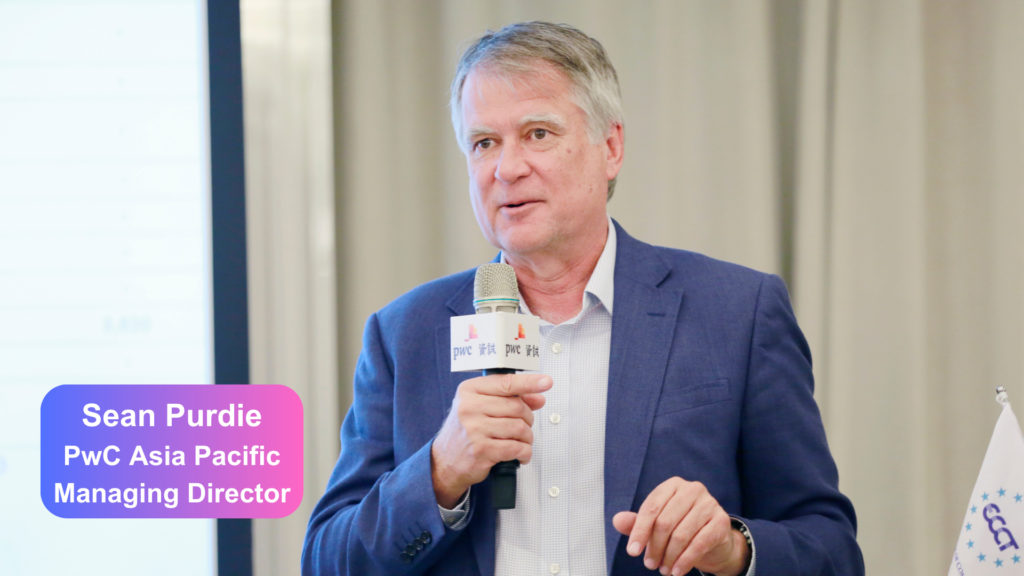
Speakers and panellists acknowledged that progress had been made towards building up wind energy capacity as well as components made locally in Taiwan. In addition, adjustments have been made to local content requirements in the next round (3.2, or the second round of the third phase of offshore wind energy development). In particular, instead of a list of mandatory items, there is now flexibility in which items developers may choose and a points system (points awarded for various components sourced from within Taiwan).
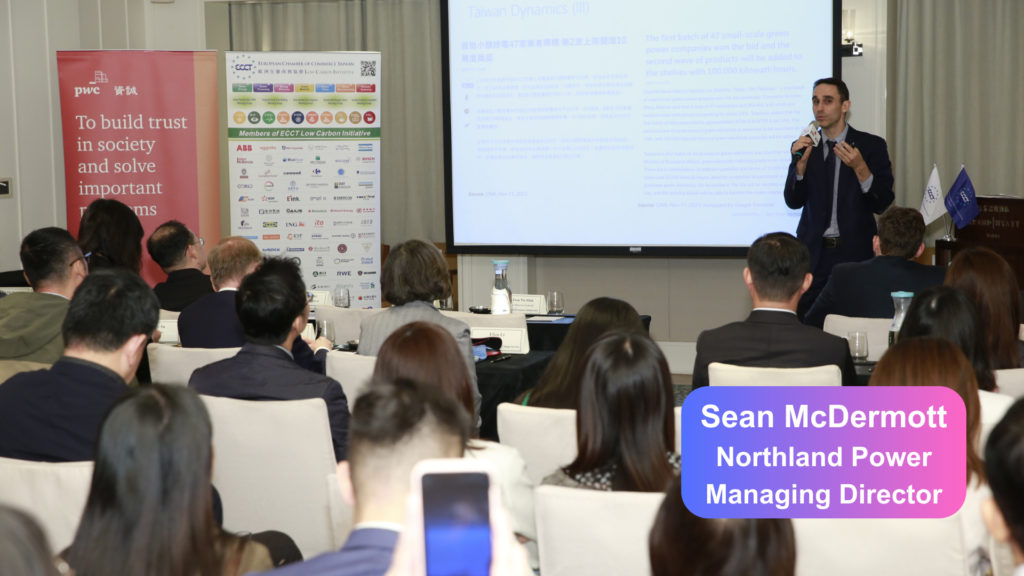
However, sourcing components from Taiwan is more expensive than in other countries while there are a limited number of suppliers for certain components, leading not to higher costs but also concerns about capacity constraints and overdependence on a few or sometimes only a single supplier of certain components. The situation has been exacerbated by global circumstances. The global wind energy industry is going through its most difficult time in 15 years. Despite high demand for wind energy, the pandemic and other geopolitical events have led to spikes in costs of every component and service. This has disrupted what had hitherto been a continuous pattern of ever-decreasing costs of wind power due to increasing economies of scale. For the first time in the industry's history, costs have risen, making previously planned projects financially unviable. As a result, many projects have been cancelled and several auctions have failed to attract bidders in several countries, including in Europe and the United States.
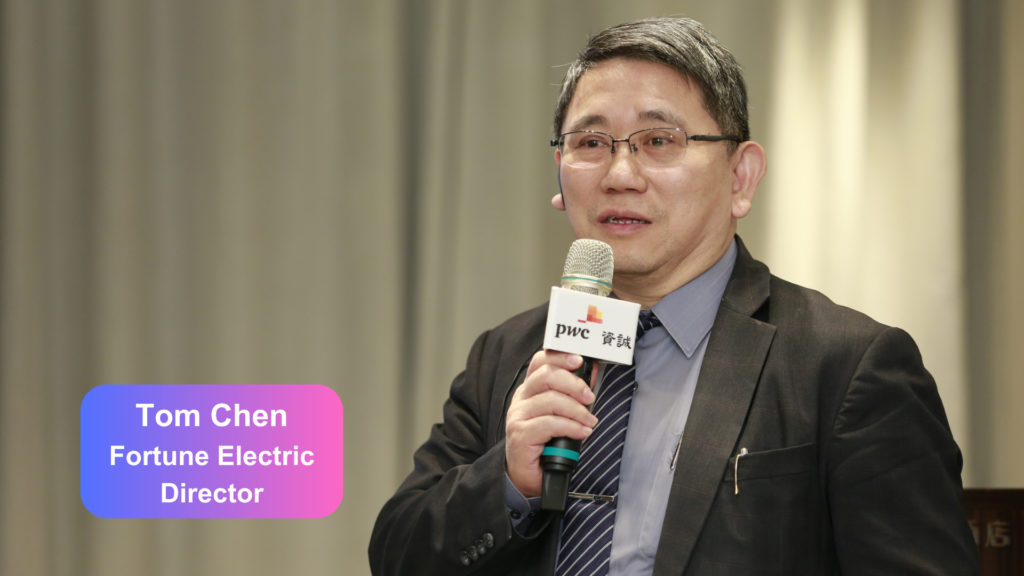
On top of these global difficulties, Taiwan has its own unique challenges. For one, the turbulent weather in the Taiwan Strait means that the season for construction is much shorter than in other regions. Given that certain costs cannot be avoided, even when the weather does not allow work to be done, this means that projects take longer to complete, adding to operational costs. Another factor is that future projects in Taiwan will be in deeper water, which will require larger foundations (and more steel, which adds to costs). Another factor is financing. Given that the Taiwan dollar is fairly illiquid and there are fewer lenders, financing costs are higher. And while a number of offtakers are prepared to pay a high price for renewable energy through corporate purchase power agreements (CPPAs), developers are also concerned about the possibility of CPPAs failing in future. The lack of recourse raises the risks.
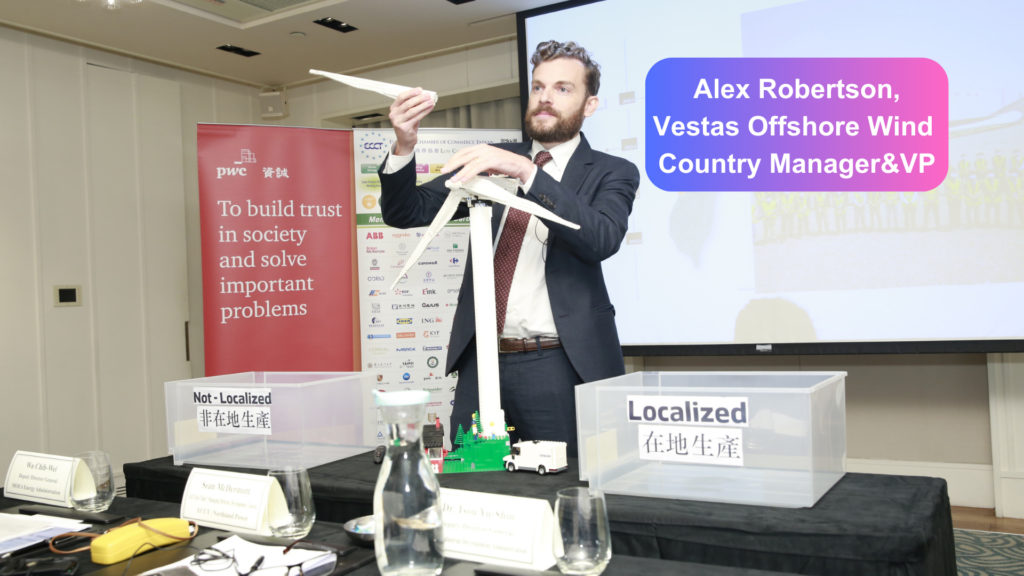
In these circumstances, developers will seek projects that offer the least risk and best chance of making a profit. If they can find better projects elsewhere, they might choose them over projects in Taiwan. Given Taiwan's inbuilt disadvantages, it is therefore in the interests of all stakeholders that regulators do their best to offset these disadvantages by making Taiwan attractive in other ways, such as by further relaxing localisation requirements and streamlining the permitting process.
